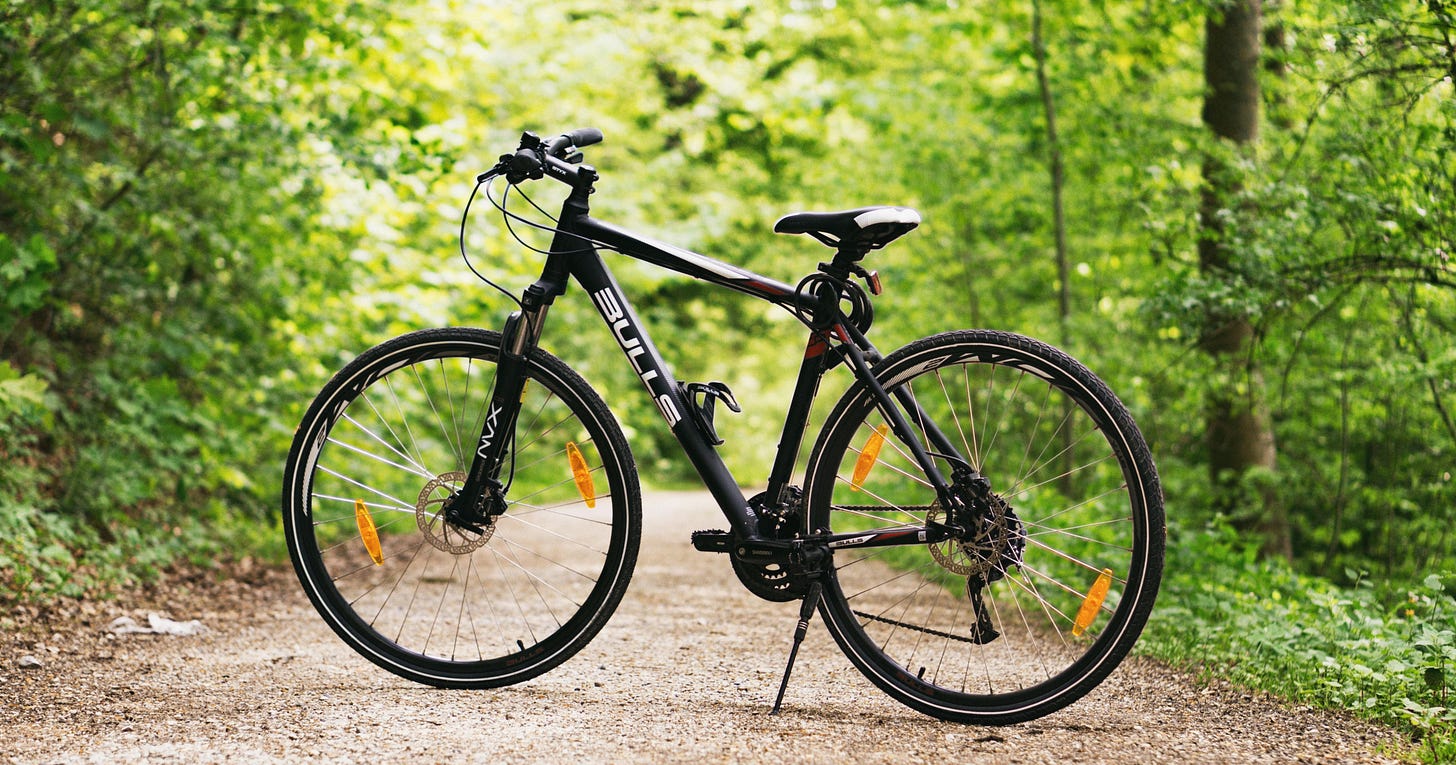A Ride to Remember: Visiting the Place of My Brother’s Death
If I retraced my brother’s steps, could I finally understand his state of mind?
On the fifth anniversary of my brother’s death, I set out to retrace the afternoon he died. I hoisted my nephew’s bike off their porch and rode along the bike path in the soft sun, following his day. I stopped at his office first, and then rode to the place he chose for his death. When the bike path divided, I took a wrong turn the first time, and had to loop back and try again.
I wanted to experience what he felt that day, riding the same path, on the same day, at the same time of day.
Fifteen years after my brother’s death, I can still hear his voice in my mind, laughing at the things he found funny. His opinions were so sharp that I can tell you what he would have thought of this year’s politics. Certain quirky news stories call him to mind, as I imagine the laughter or his outrage.
On other important things, I don’t know.
What would he think about his son, nieces and nephew, once his playmates in the snow or at the zoo, now all grown into adults? And what about the expression on my mother’s face when she died? She had a look of pure awe on her face. Was she seeing him again, on the other side of the veil?
I felt his absence at my parents’ funerals, when I wanted to lean over in the pew and let my shoulder touch his. When we were kids (ok, even adults) my dad always tried to sit between us in church so we would behave. Would the minister have made us giggles at the funeral, too? My nephew’s Zoom graduation from high school would have given him plenty of amusement, and plenty of joy. Same for his sunlit college graduation.
In the beginning, I was afraid that grief would break my family apart. Our family of stoics would fracture into isolated lumps of grief. It would be too hard to be together, and we would drift apart. My sister-in-law would find some sporty optimist to marry and leave us behind for a new family full of happy people. We would always be the family where he died, marked by before and after.
Instead, our solid Midwestern hearts cracked open. My dad learned to cry and tell his grandkids he loved them. (He still always said a substitute “thank you” to me and my brother.) My brother and I shifted roles to cover all the family dynamics, getting the rare gift of shedding the old patterns. I cultivate more of my brother’s goofiness. We learned to be the family where he lived.
Riding my nephew’s bike on that August afternoon, I got to the place where depression talked my brother into ending his life. I stood there and, even in the same place, on the same day, at the same time, I couldn’t reach into his mind.
So, I pile up the gifts he left us. The determined joy that accompanied his depression, making the highs high after the lows were so low. The cooking adventures that used all the bowls, some twice in the same day. So. Many. Dishes. Taking the time to look the waiter, the store clerk, the custodian in the eye. The love of a big project. The bizarre news item.
The people we can’t reach still make themselves present. They give us the mystery gift of themselves, in strange and delightful slivers of their presence.
Image above via Pexels.






Mary, so moving and real. You described the unimaginable: “The people we can’t reach still make themselves present. They give us the mystery gift of themselves, in strange and delightful slivers of their presence.”
Mary, your writing usually takes an ordinary moment and makes it holy. But in this case, it feels like you've done the opposite -- you took a holy and ineffable moment, and made it ordinary. I'm sure it will touch many, as it has me. Thank you.